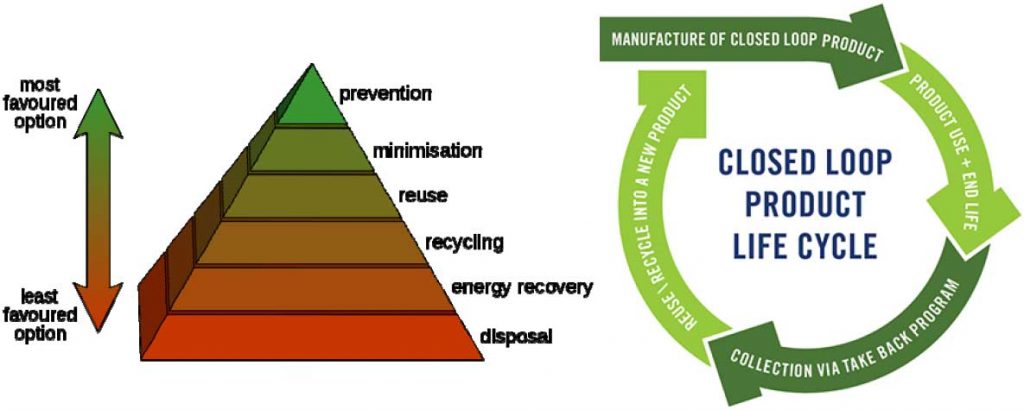This newsletter is to highlight some choices which make a difference to the quality of the air, water and soil we use every day for the benefit of our ecosystems and human health. Importantly, passing on a healthy planet to our children generation starts with our education and changing our behaviour.
PREVENTING POLLUTION IS EASIER THAN CLEAN-UP
Our world population of 7.7 billion is struggling to contain the 2.1 billion tonnes of waste produced annually. In Australia, each year we produce approximately 67 millions tonnes. Our ecosystems are being impacted by our ever increasing amount of uncontrolled waste released into our waters, soil and air. The waste in our environment stunts the growth of living organisms, and depletes the flow of energy and nutrients to our ecosystems of which we all depend upon for survival. Waste flows in many forms (solid, liquid, gases), such as industrial/residential rubbish and byproducts, exhaust fumes, and animal/human waste. The waste moves around the planet in conveyor like air and water currents. For many decades, pollution from around the planet has been accumulating on the ocean floor. Scientist don’t know how many millions or billions of tonnes of waste rests within our ocean or the number of landfills exists around the planet. Most of our waste is hidden and out of sight. We do not understand what the “safe level” of pollution which can stay within the environment without causing harm to our ecosystems. We do know that the planet has an ecological deficit. Since the 1970s, the annual demand on world resources has exceeded what the Earth can regenerate each year. Today, humanity uses the equivalent of 1.75 Earths to provide the resources we use and absorb our waste (i.e. takes the Earth 1 year & 8 months to regenerate what we use in 1 year). We use more ecological resources and services than nature can regenerate through overfishing, overharvesting forests, and emitting more carbon dioxide into the atmosphere than forests can sequester. Today, microplastics are everywhere including in the air we breathe and fish we eat. In our western world, about 99% of the stuff we buy is trashed within 6 months. The daily use of plastic is the responsibility and story of our “throw away” culture. Plastic has been part of our lives for decades, from the food packaging, our clothes, and the vehicles we drive. Many of the plastics we use so briefly ends up in our ocean and remains for decades. The responsibility of waste production and management must also rest with the individual (consumer). Restoring our ecosystems requires an attitude and behavior change to “conservation” and erasing the “dumping waste” mentality. As a global community, we should know that we are “ecologically deficit” due to our massive annual waste budget (2.1 billion tonnes) and insufficient fresh clean water for our 7.7 billion people. Much of the fresh water resources is used to support our industry, including the billions of the single use plastic items produced every year. 
WHAT CAN WE DO
We can all take part in keeping the environment clean by preventing or minimising waste generation, adopting renewable energy sources, planting trees, reducing chemical usage, & restoring the rivers. Supporting business with closed loop products and services would reduce the amount of waste generated and save our natural resources.
- Engage the community (raise awareness)
- Adopt good infrastructure for containing pollution (stormwater control, use of recycling bins)
- Government incentives (signs, penalty, laws)
- Individual Choices & Purchases; biodegradable & enviro’ friendly products (no single use plastic)
- Less reliance on fossil fuels and more renewal energy for transport & domestic use.


- 6 February 2020
- Water
